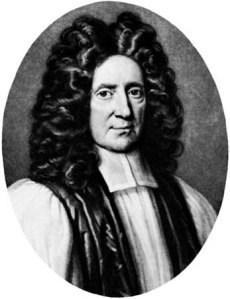Descartes’ theory of the emotions along with his Stoic tendencies pressure him to recommend that the emotions are fully controllable by the mind. In fact, he goes so far as to say that failing to eliminate them is wrong.
As we’ve explained, Descartes argued that only our thoughts are completely in our power. So that would mean that emotions better be thoughts. If they aren’t, if they’re more like natural appetites or drives, such as for food or sex, then they wouldn’t be under our control.
As he was so interested in providing a materialist, or physical-system explanation of how the mind and body work, Descartes recast the struggle between the natural appetites and the will as a battle between movements of the pineal gland caused by chemicals (body-caused) on the one hand and movements of the pineal gland caused by the will. (soul-caused). In this set up, there are no “parts” of the mind, nothing in the soul to compete against will-guided-by-reason, not even the emotions.
So the Passions of the Soul ends with Descartes trying to explain how some people could completely stop their emotions. But this goal doesn’t really follow from what he argues. The story he tells is that people with stronger souls can more easily “naturally conquer” the emotions. Think of it in terms of a video game – a character like Ryu from Street Fighter can fire an energy blast:
Some souls can naturally muster strong than average blasts, and these blasts are typically stronger than the normal blast from an emotion, and so overpower them. But some people can’t or won’t test the strength of their soul in such a battle, they never make their will go head-to-head, blast against blast. Instead, these weaker people try to find a way to manipulate the emotion’s own blast by forcing themselves to have a second emotion. The experience of having two emotions attack each other; if you are ‘attacked’ by sadness, you can attack back with anger, and hopefully they will cancel each other out. So Descartes is saying that a lot of people don’t really conquer or completely eliminate their emotion(s), they don’t totally undermine the emotion that was causing them a problem, they become in a way more emotional in order to deflect the worse emotion.
But the proper weapons of the will, the ones you’re supposed to fight and destroy your emotions with, are “firm and decisive judgments concerning the knowledge of good and evil, which [the soul] has resolved to follow in conducting the actions of its life”. I guess you can think of them as shields protecting the soul from emotions.
Weak people, or people with weak souls –weak in a literal physical/chemical sense it seems –have wills that don’t decide to follow these judgments. Instead they allow these souls continually allow themselves to be carried away by whatever passions are present, even as they oppose one another. This twisting and turning of the soul – again, somehow in a literal sense, make a soul “enslaved and unhappy”.
But Descartes doesn’t think weak people, weak-will souls, are so weak that they are doomed. For him, no soul is so weak that it cannot, when well guided, have absolute power over its passions. The way to do so is to undo the damage done by bad associations – one must undo the connections between specific thoughts in the soul and the movements in the pineal gland that lead to them, and replace them with others by repetition or habituation. So training yourself to have specific thoughts in response to certain chemical reactions in your brain will lead you to be a better behaved person and eliminate your emotions.
Now, we’ve got the whole story and we can better see how this fails as coherent explanation of the emotions. Its not so bad that Descartes’ attempt to explain the emotions way off on the science, its more that its internal problems historically lead other thinkers to start thinking it is hopeless to have a strongly ‘cognitive’ component to emotions and to try to explain it all in terms of physiology and feeling. The worst part, though, is that both his successors and his detractors continually repeat his errors.
In the next series of posts I’ll show you how throughout the 17th and 18th century both pro-cognitivist thinkers such as Richard Cumberland and various ‘visceral theory’ thinkers make the Cartesian errors and how this leads to 19th century thinkers favoring expressivist ethics and purely physiological theories of emotion. As I’m sure you’ve figured out by now, I think this was a huge mistake.
Next up – Richard Cumberland, a Cartesian who knew wayyyy more about the body than Descartes.


No comments:
Post a Comment